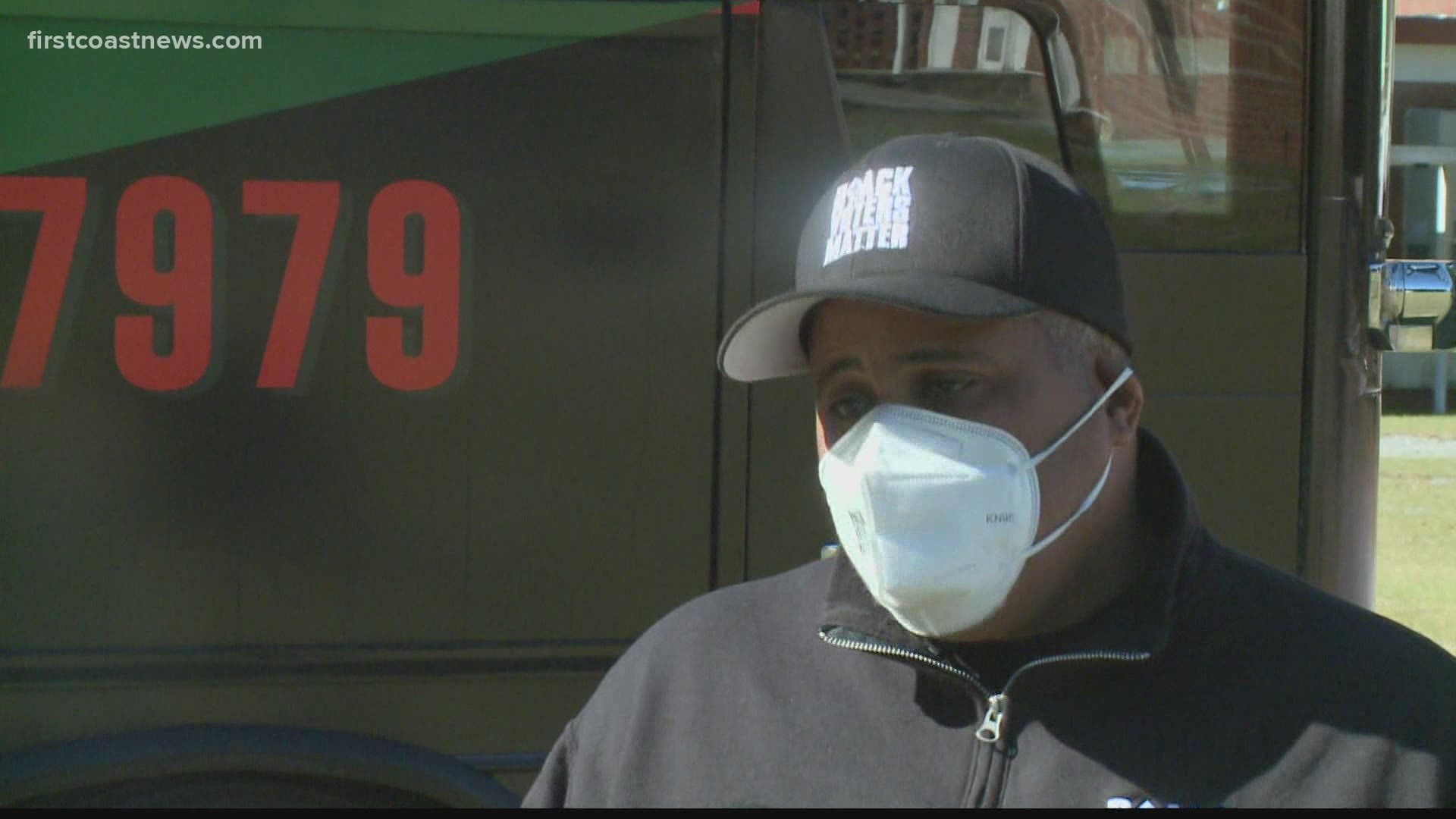GLYNN COUNTY, Ga. — A meeting lasting more than an hour, mostly behind closed doors, ended with some passionate exchanges before the Glynn County Elections Board eventually voted against reviewing a challenge to verify the addresses of 262 Glynn County registered voters.
A Texas-based group “True The Vote” said it submitted challenges in Georgia’s 159 counties impacting thousands of voters, including some in Southeast Georgia.
National and local groups, including Black Voters Matter, attended the hearing, along with several citizens.
Cliff Albright told First Coast News ahead of the hearing that he viewed the tactic as voter suppression.
“This is an illegal action they are contemplating, "Albright said. "It’s not one that should be given any credence or taken serious, it’s a frivolous effort like all the other efforts to overturn this election.”
He and several others, including the leader of the local Glynn County Democratic Party, spoke against the challenge.
Catherine Engelbrecht, founder and president of True the Vote said their group, “assisted concerned Georgia voters in taking a stand for the sanctity of every legal vote.”
Georgia House Representative Jeff Jones, whose district includes Brunswick, presented the challenge to the board, which voted 2-1 against reviewing the challenge.
“It’s unfortunate," Jones said. "I think that the board of elections chose to dismiss this challenge outright without spending time investigating where these 262 people actually live now."
He said he filed the challenge as a private citizen, not in an official capacity.
Jones said the basis is on “data analytics” that 262 Glynn County registered voters cast ballots on Election Day but said they changed their address prior to Nov. 3.
“The request was, let’s make sure we have clean, accurate voter rolls in Glynn County,” Jones said.
Jones denies it was a form of voter intimidation.
“There’s no mention of race, sex, religion or any other identifying demographic information,” Jones said.
While the crowd waited for the executive session to end, Jones was asked what the study entailed. He said it excluded military ballots and ballots from college students who moved out of the area.
Jones told people it was a “deliberate effort” to screen those ballots out but says he himself did not do the data analysis.
The screening process was questioned by Albright who says the challenges are baseless and thinks it is a scare tactic.
“They don’t do this just because they are trying to get a legal victory. Part of why they do it is to instill confusion and intimidation in the process,” Albright said.
“If Black voters in Glynn County think for a moment they’ll have people inspecting their votes, addresses or why you did this or did that, it has a chilling effect on turnout," Albright added. "They know that and that’s part of what their intentions are."
Albright says it is part of the reason why they travel the state to ensure Black voters across they have support.
“We got power and we’re not going to let anybody take away the power we have,” Albright said.
Jones said he wants to propose a “database cleanout” rolling out quarterly checks of addresses for registered voters.
“I’m not talking about purging people who are legal voters but making sure we got people registered in the county in which they actually live," Jones said. "Keep the system clean as we go."
A board spokesperson said if the challenges are accepted, there could be possible legal action filed against Glynn County by the NAACP and ACLU.
Similar issues have been discussed in Cobb County and Muscogee County.
The elections board in Cobb County rejected True the Vote’s challenges, but Muscogee County’s board found “probable cause” for the complaints.
Accepting the challenges would prevent voters from participating in a pivotal run-off election for Georgia’s two US Senate seats, the board said.

